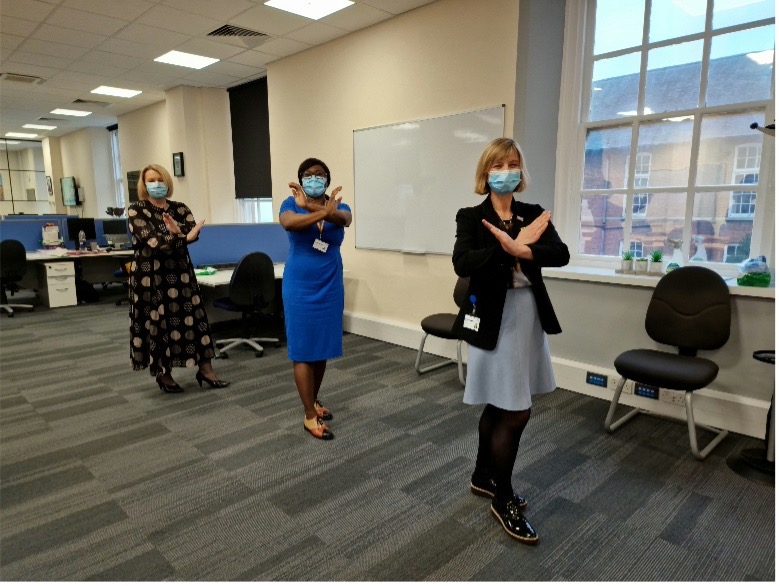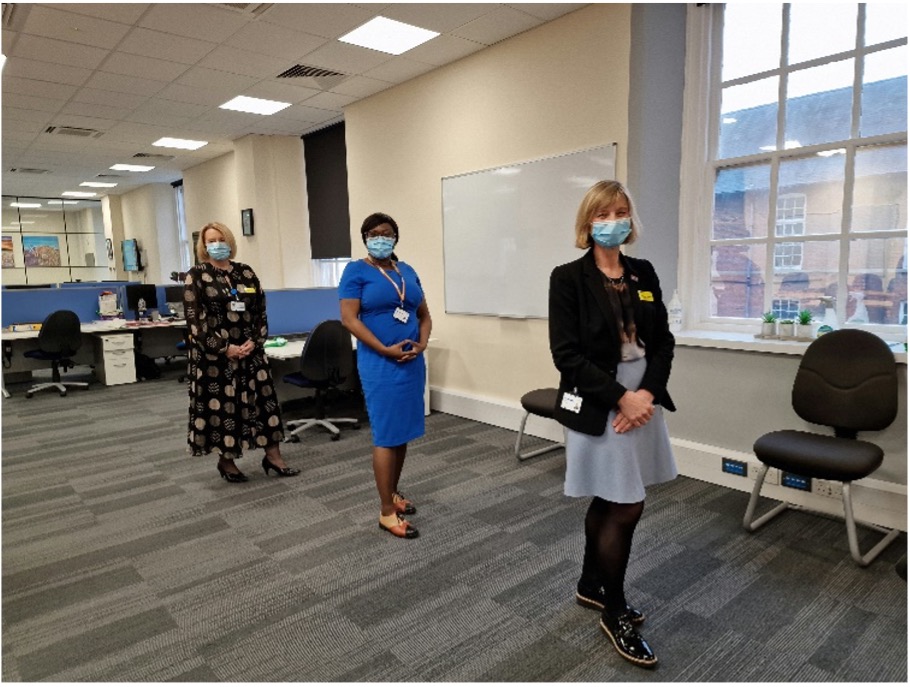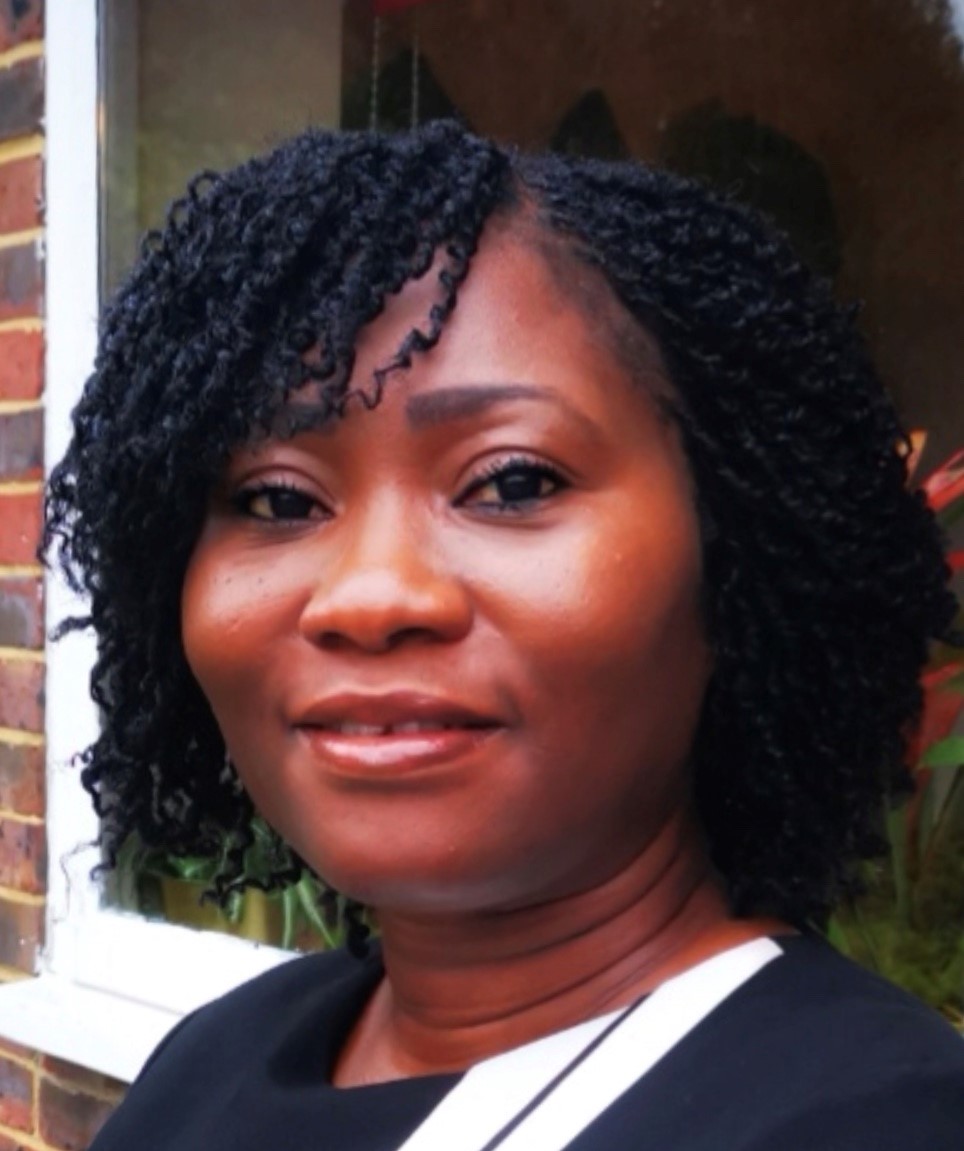I am writing this blog in celebration of International Women’s Day (Wednesday 8 March 2022) as I want to share some of mine and my female colleagues’ experiences. Not only as women who have experienced bias, stereotypes and discrimination but as women who actively work together for change.
Writing about #BreakTheBias is not easy because, despite significant progress, we live in a world where bias, stereotypes and discrimination still exist. If we want to discuss these productively, it’s important to firstly set out what these concepts look like and accept they exist before we can actively do something about it.

Stereotype is a generalized belief about a particular category of people (Myers 2013). We are all influenced – often subconsciously – by gender rules which tell us what is appropriate for men and women (including people identifying as women), from early years to adulthood. For example, in:
- Early years: you tend to hear that only girls can play with dolls and only boys can play with cars. Girls can only grow up to be nurses, while boys can grow up to be surgeons. I know of brilliant female surgeons who wouldn’t have fitted this stereotype in their early years.
- Teenage years: you tend to hear that girls read quicker than boys, but my nephew could read at the level of a 12-year-old when he was just five-years-old, better than any of the girls in his class. You also, sadly, still often hear that it’s ok for girls to show their emotions when they are sad, but ‘big boys don’t cry’. Fortunately this perception is changing and today’s boys and men are more emotionally open than their forefathers; crying is our body’s way of reducing and processing emotional stress. Having gone through the waves of the pandemic, it’s important that everyone, male or female, can feel they can reduce and process any emotional stress.
- Adulthood: you hear assertive women being referred to as ‘bossy’ or ‘aggressive’, while assertive men are seen as natural leaders with the aggression being accepted as part of their style. By contrast, I report to a male Chief Executive at Medway NHS Foundation Trust. He has an incredibly empowering leadership style and is nurturing, calming, and supportive in how he interacts with others. His leadership approach is about bringing people of different genders and ethnicities together as a team and respecting them as individuals, and empowering them as a collective to deliver improvement in this challenging new post-pandemic environment.

Bias is widespread in all aspects of our lives, purely because our brains are structured to group our singular experiences into general rules in order to make sense of things happening around us. At the same time, biases can make us form prejudices; these prejudices can be against one gender over another, groups of people, situations, etc., which can lead to the creation of inequalities if they are not addressed and challenged. Gender bias specifically can be a form of unconscious or implicit bias where certain attributes and stereotypes are assigned to women. I recall having a male line manager who said that ‘nurses are not as bright as doctors, women are second class citizens, and black people are at the bottom of the race chain’.
I was a young, black female nurse reporting into him and so experienced not only gender but racial bias too. A colleague recently shared her experience of working in a male dominated office, where she was asked and expected to make the coffee as “that is what her qualification is good for”. In fact, she was far more highly qualified than the male counterparts in the office.
Historically there has been a perception that you have to be aggressive and dominant – traditionally male traits – to be taken seriously in the boardroom, but I work with incredible women in a triumvirate (Chief Operating Officer Jayne Black, Chief Medical Officer Alison Davis with me as Chief Nursing Officer) who succeed because they aren’t aggressive. It is their kindness and compassion that make them capable leaders.
Discrimination persists in every corner of the world, with gender discrimination specifically focusing on where people are treated differently because of their perceived abilities because they are male or female, rather than their actual individual talent and ability.
I remember many years ago completing a phone interview to sign up to a recruitment agency to do extra shifts as a nurse. On arriving at the agency the next day to collect my uniform, the person I had spoken to me asked me ‘why are you here and what do you want?’ in an unfriendly manner. I was ushered into a room to complete another repeat application form and, sitting in the room, I distinctly heard the woman I had been talking to refer to me in a conversations to her colleague, saying she was ‘not sure why she is here because we don’t give her sort work’. Sitting in the room, I wanted to challenge what was said but was too worried about being referred to as “an angry black woman”. When I left the agency office I was told that I would receive a second application response in the post, and I do remember feeling pleased that I had not been referred to as an ‘angry black woman’. But, to no great surprise, I received a letter saying I was unsuccessful in signing up to the agency.
It gets confusing because on the one hand women are seen as being too soft to be good leaders but if you are a passionate woman – certainly a passionate black woman – you will have been accused of either being angry or aggressive. Having led on the international recruitment of nurses, I have understood and appreciated that cultural understanding and acceptance cuts two ways. Bringing staff from other cultures into the British culture requires the need for both cultures to understand each other in order to enable harmonious co-existence to the benefit.
Over the years, you learn to know that stereotypes, bias and discrimination are not mutually exclusive. Another example; some time ago I was interested in a Director of Nursing role and talked to one of the existing Directors at the organisation about the role. I will never forget being told by this man – who said he was being helpful to me – that in order for me to be considered for the role I would need to be “white, male, over-40, aggressive and a bully”, and that “it was a club I needed an invite to”.
I was taken aback at the boldness but thought I had to come back with something, and my response was ‘as I am not white, male, over-40, aggressive or a bully, who do I need to speak to, to gain access into this club’? He didn’t have any ‘helpful’ advice on that point.
It is these gender stereotypes that often hold women back or kills their confidence, causing them to question their abilities, what they are able to achieve and who they can be. Another colleague shared her experience of being advised by a well-intentioned senior female colleague that she should delay having children until she was at least a senior registrar if not a consultant. This meant that she became a mother between six and eight years later than most of her male colleagues became fathers. She is fortunate to have had two wonderful children, but had complications along the way. She has always wondered if she had had children earlier whether she still have had the complications she experienced.
Despite these incidents, I still believe that there are ways that we can address these issues. For example:
- Help and educate other people to see these negative stereotypes. Not everyone is able to see these straight away, and so helping them to see it by calling it out is a key approach.
- Being a living example for colleagues, friends and family, because the same blood runs through us all, irrespective of what sex, race, we are.
- Speak up when someone makes an inappropriate joke or a colleague is being subjected to such behaviour. What you do is what they will remember, not what is being said to them. Support them to prevent the unkind words from shaping any important decisions and their confidence.
All women, white, black, Asian, and minority ethnic staff have a lot to bring to our common goal of putting patients’ first, and the best care being delivered by the best people. Working in a Trust with a majority female Executive Director team (six women, four men), including a female Chair, I believe we can all work together to improve the experience and standards of patients care.

Evonne Hunt
Evonne Hunt is the Chief Nursing Officer at Medway NHS Foundation Trust. Evonne has board level responsibility for professional nursing, midwifery and allied health profession workforce to support the delivery of high quality compassionate care. Prior to that she was Deputy Chief Nurse at Dartford and Gravesham NHS Trust and Chief Nurse in the independent sector. Evonne has been a nurse for 24 years and has held director and senior leadership level positions in nursing, quality governance, patient safety, and risk management in acute, mental health and commissioning organisations in the NHS. She has also worked in the Department of Health and the independent and private healthcare sectors. Throughout her leadership roles, Evonne has remained an active clinician on the wards to stay close to hand-on patient care.
Declaration of interests
I have read and understood the BMJ Group policy on declaration of interests and declare the following interests: none.